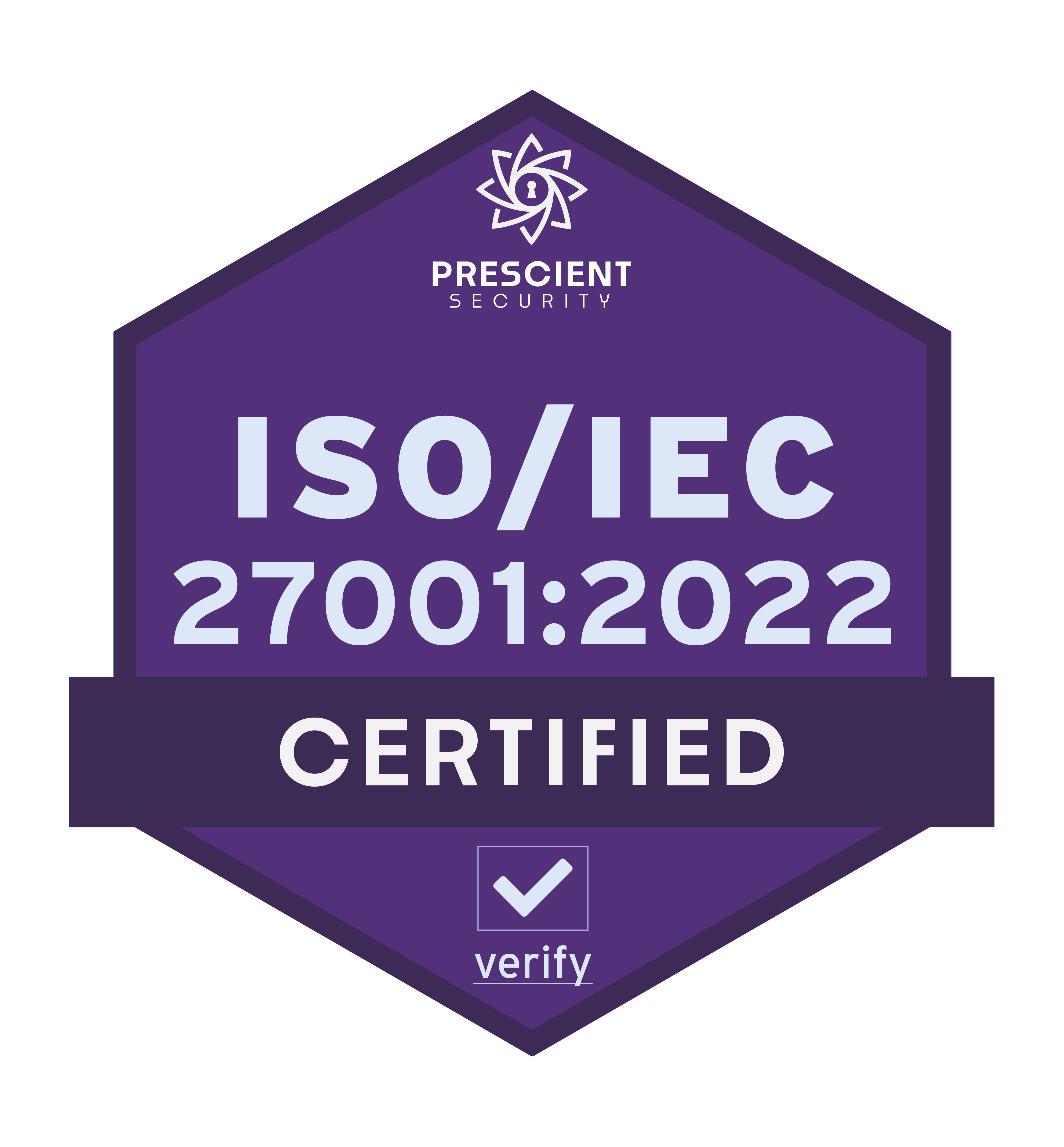
The Future of Legal Matter Management
This article aims to shed some light on a variety of legal matter management challenges and will explore how each can be dealt with. Historically, lawyers and even the legal team in any organisation, have been tainted by their roles, being tasked to intervene in matters that aren’t always pleasant. In general, legal professionals are under scrutiny throughout their careers, and sticking to set standards is critical. Given the circumstances, legal professionals seldom get new systems to help with case management to assist in improving internal work processes and the quality of client services delivered by the legal team.
Simply put, in the 21st century, most industries have systematically updated or upgraded how they work, whether it is to keep up to date with the expectations of their clientele, to boost productivity, or address and resolve budgetary constraints. Some examples include the rapid expansion of food takeout delivery services, streaming on-demand and eCommerce. With all these technological advances shaping the world as we know it, one needs to ask if there is an opportunity for the legal industry to fully embrace this shift.
At Legal Interact, our legal experts do not claim to know all the answers, nor do we have a crystal ball, but we have learned some key lessons over the past 40 years working with lawyers, giving us a better understanding of their work processes, the challenges they experience and the ever-growing need for innovation. It is with this same value proposition that we have created a system to aid the legal industry, encompassing all fields of specialisation and departments, to alleviate the administrative and often repetitive burden that legal practitioners are tasked with.
Raphael Segal, Director of Legal Interact, believes that having a legal matter management system in place that manages all these tedious and heavy administrative tasks allow legal practitioners to focus on what they do best, which is practicing law. This legal matter management system is called Matter Manager and by embracing this new technological way of conducting your business, you can find, track, and manage various areas in the legal team which you never knew or thought of before. Next, we’ll reveal more what the legal matter management system offers to the legal profession and explain how it works.

Why a Legal Matter Management System like Matter Manager (MM)?
“It’s simple, to see the trees for the forest by blocking out the noise and to focus on what’s expected,” says Segal. When looking at the conventional way in which law firms or in-house legal counsel conduct their business, there are multiple synchronous factors, both internal and external, that creates the perfect storm, and if caught in its eye, legal practitioners might be overwhelmed and become inundated with administrative tasks. Manual administration methods are tedious, waste time and prevent legal practitioners from conducting their work efficiently and promptly. Some of these factors will be discussed below:
The Legal Environment:
There is a myriad of laws, resulting in a variety of legal questions or legal requests. Unless the legal practitioner specifically specialises in a certain area of law, their function is to provide legal advice or aid with a broad variety of requests. This means, for example, an in-house counsel can be distributed interdepartmental to help if and where needed. This can include, but is not limited to, giving advice on contractual matters, human resource disputes, even litigation requests stemming from outside of the organisation. This influx of information, and a lack of systems to distribute, track and store the information, can cause chaos. Having an integrated legal matter management system, such as MM, can centralise all these requests, allowing legal practitioners to track and manage the cases they are working on, and prevent tasks from falling through the cracks.
Staff Shortages:
Being understaffed can place a tremendous amount of pressure on a business’s existing staff. This is not a problem that only affects the legal team, however, due to the nature of the work being carried out by the legal team, and legal ability needed, it is impossible for anyone in the organisation to help the legal team in times of dire need. Without the necessary exposure and experience, anyone wanting to help the legal team would add more pressure to the legal team, causing further delays to the process. This can result in legal practitioners becoming overworked and over-exposed. To prevent staff burnout and further worsen the staff complement, implementing legal matter management tools such as MM, can give your legal team some slack from dealing with administrative matters, to focus on more important tasks at hand.
Cost Management:
Although legal aid comes at an excessive cost, being a specialised skill, there are no alternatives or replacements when it comes to the rendering of legal services. For the sake of landing a favourable outcome on a case, money is not a factor when it comes to keeping the services of advocates, legal experts, or other external service providers. Not having a direct line of sight on these costs, could increase the budgetary constraints affecting your business operation. Cost management is critical, especially when professional skills must be acquired. Having the necessary tools in place, would allow legal practitioners to control and track their expenses, and have a clear view of where the business’s money is spent.
Unique Qualities of Legal Matters:
Lastly, the work itself needed from the legal team is intricate and nuanced, as no two cases are the same. The way in which a multi-million-rand merger contract is drafted and worded, differs from a boilerplate confidentiality contract. The same goes for the procedure of handling labour disputes, each will be based on circumstantial facts. The pen and paper method will only allow as much as the human memory permits, thus prompting the need to have integrated and innovative systems in place that would allow legal practitioners to keep track of requests. Well-informed practitioners can provide sound legal advice and help.
MM is not a tool to replace the legal practitioner, who has a specialised skill that cannot be automated. The practice still requires a human touch, compassion, and knowledge. It is a tool to improve tracking, managing and view all the legal requests being dealt with by the practitioner. MM channels the diverse stream of requests into one integrated designation, acting as a single hub that communicates the origin of requests, case status and workflows. It also allows reporting and provide budgetary overviews.
William Arthur Ward said: “The pessimist complains about the wind; the optimist expects it to change; the realist adjusts the sails.” Times are changing, and the fast-paced environments that business must function and compete in today, demands rapid, efficient and simplified methods to provide the best quality of service, achieved only through the implementation of advanced technology. As a change management tool, MM augments the legal operations of any organisations or law firm. Think of it a process implementation tool to ensure legal requests are dealt with as uniformly and consistently as possible.

Features and Functions of MM
Customised workflows:
One of the biggest advantages of MM, is the fact that it is tailored to meet a client’s needs and requirements. This means that the system is not rigid or uncompromising.
Before we get into some of the supporting features and functions of the system, reference must be made to the ‘workflows’ that the system offers.
- Do your legal operations consist mostly out of creating contracts? Then those contract steps, or what we refer to as workflows, will be made available to you for every contract you usually create.
- Should you mostly follow a litigious operational principle, a tailor -made workflow is made available to you, as detailed as it needs to be.
Thus, the workflows are created according to the operational model that you are accustomed to and does not require you to change your legal operations to fit the system.
Templates:
Next, we look at the templates generated by the legal matter management system. Keeping in mind that not every legal request is the same and that there are subtle intricacies which differentiates one legal request from the next. MM offers you the ability to create templates for the documents usually saved under a templates folder. The purpose of the templates is to take away the burden of boilerplate clauses, such as the design and layout of the of the document which takes up valuable time, granting a legal practitioner with ample time to focus on the legalities of the contract. This will also eradicate any room for error, when accidently choosing the wrong template. One must note that the purpose of these templates is not to make provision for all legal documents, and more intricate documents would still need to be drafted as needed. This system however provides practitioners with the ability to generate everyday documents with a mere push of a button.

Centralised Document Repository:
Speaking of documents, MM serves as a centralised hub where all documents related to a specific legal request can be stored and saved securely. However, this functionality still depends on your diligence to save the documents on the system. This functionality, if utilised, takes away the burden of having to save and store documents arbitrarily and haphazardly on a shared drive, increasing the chances of it being overlooked or potentially getting lost.
To reiterate that the MM system fits in with your operational model, any document categorisation that you have been using or are accustomed to, can be incorporated into the system so that no time is lost getting used to a new categorisation method. So, if you have a document of any kind (Word, JPEG, Emails, etc.), MM can be used as the centralised document repository to safeguard those documents.
Task and Action Allocation:
Any tasks or actions relating to the legal request that must be completed can easily be created, managed and tracked through the MM system. If you require someone in another department to supply information or documentation, simply task them through the system. Should the task require further clarification or editing, simply send the task back to the creator and have them respond to your query directly through the legal matter management system. The ease with which the system can be used simplifies the mundane actions and tasks you must complete. Coupled with MM’s ability to escalate overdue or incomplete tasks, deadlines can now be tracked and turnaround time improved. Not only does the system inform you of any overdue or incomplete tasks in-system, but it also notifies you using ‘system notifications’, which sends email notification through Microsoft Outlook to the relevant recipients, keeping them updated of any action, whether pending or not, being conducted on the matter.
Another useful feature is the ability to seamlessly integrate with your website. By simply informing prospective clients to give and explain their request or requirement through your website, you can automatically create a new request that needs to be actioned on your system. With little to minimal changes needed to apply this integration to your website, clients will now never have to miss a new business lead or have a request slip through the cracks. If you need to capture your billing or time on a legal request, for key performance indicators (KPIs), the MM system does this automatically. When done in conjunction with the reporting feature, you can easily identify pain points in the process, check and reduce the workload of employees or analyse their method of working. This ultimately not only helps the organisation to increase productivity and output, but also improves client satisfaction; the goal for any organisation. A happy client is a repeat client, resulting in positive word-of-mouth, which in turn will eventually increase revenue. All of this can be made possible by just changing the process and method used for working on your legal requests.
Legal Interact is mindful that an organisation would need to continuously change and improve, that’s why we are here to help companies to make the necessary changes to the system, for it to be aligned with any changes to their legal operations.

The Matter Manager Team
Legal Interact proudly employs a dedicated team, all experts in their designated fields, to help with client queries and support issues. Our staff complement boasts qualified attorneys to consult on legal compliance matters, actuaries to aid with financial queries and developers with joint industry experience of more than 100 years. This wealth of knowledge and experience is only outshone by the support team’s friendliness, willingness, and eagerness to provide you with the best support, guidance and training needed. The MM system is the brainchild of Raphael Segal and was designed with the intention to simplify the legal practitioner’s workload.
The legal fraternity, especially in South Africa, have a reputation of being stoic, rigid, and hostile to change. Unfortunately, this reputation is out of touch with today’s demanding and ever-changing consumer market, where clients expect professional and prompt service. Access to technology, and the digital world as we know it, has granted today’s consumer a direct market access, making it easier to walk away from one business and knock on the door of its competitors.
What we need to ask ourselves, with humans being able to track anything through digital devices, why not give them the same ability with regards to their legal requests or requirements? The technology exists, it needs to be embraced, and now is the opportune time to do it!
If you would like to find out more about Matter Manager, you can simply book your demo by emailing info@legalinteract.com, or by visiting our website https://legalinteract.com/matter-manager/






